Gender-based Violence: Rising Numbers, Mounting Challenges
- Par Kimeng Hilton
- 29 oct. 2021 15:20
- 0 Likes
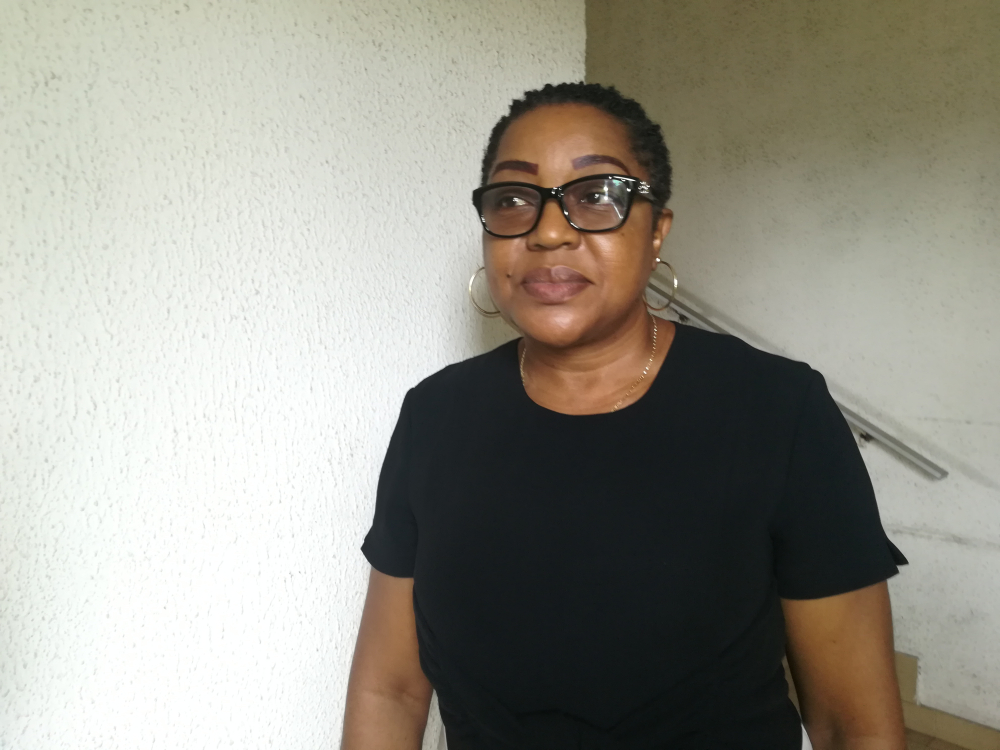
Tackling Anglophone Crisis cases demands concerted humanitarian efforts and enhanced funding as the situation becomes more complex by the day.
While the crisis in the North West and South West Regions lasts, the number of Internally-displaced People, IDPs seeking refuge in neighbouring Littoral and West Regions is also on the rise. This compounds an already difficult situation. As the challenges of displaced people increase and become more complex. By the day. Thus, the urgent need for concerted action by government, humanitarian agencies, donors and other partners to provide life-saving assistance to more Gender-based Violence, GBV victims of the conflict.
For now, the United Nations Population Fund, UNFPA Cameroon runs the 18-month European Civil Protection and Humanitarian Aid Operations, ECHO Project. With funding from ECHO, the European Union’s humanitarian wing. The project seeks to reach over 183,000 displaced people and members of host communities in the North West, South West, Littoral and West Regions.
Finding Out The Problems
“The aim is to prevent and respond to Gender-based Violence, and allow women in difficult situations to secure lifesaving services to ensure safe pregnancies and deliveries. Once they survive and are provided with the capacity, competence and skills, they will bounce back to life through small businesses,” explains Siti Batoul Oussein, UNFPA Cameroon Representative. Lasting from December 2020-April 2022, the project certainly demands an extension because of the growing number of vulnerable women and young girls seeking assistance.
“The people of Littoral Region are so welcoming, reason why IDPs easily integrate. But the problem of overcrowded living conditions persists. I hope UNFPA and its partners will take this into consideration in designing new humanitarian projects,” says Samuel Dieudonne Ivaha Diboua, Governor of Littoral Region. “Development partners need to complement each other. Humanitarian projects have limited funding, thus the need for more government support,” an ECHO staff appeals.
The EU donor agency was part of a delegation of representatives of UNFPA, the United Nations Office for the Coordination of Humanitarian Affairs, OCHA, the United Nations High Commission for Refugees, UNHCR and the United Nations Children’s Fund, UNICEF, which toured the Littoral and West Regions from October 18-22, 2021.
The first objective of the trip was to assess the impact of UNFPA’s ECHO-supported project. That seeks to assist Gender-based Violence, GBV survivors of the armed conflict in the North West and South West Regions. The visit was also to identify potential synergies and complementarities between the newly approved UNICEF project and UNFPA’s project. Also financed by ECHO, UNICEF’s project will focus on child protection, education and Water, Sanitation and Hygiene, WASH activities.
Crammed Living Conditions
“The needs of displaced people are huge. Some live in overcrowded rented accommodation in Douala – as many as 20 and even 30 per room! They take turns to sleep during the day and at night because the space is not enough for everyone to sleep at the same time. Such cases require emergency assistance,” entreats Makota Isabelle La Fortune, Littoral Regional Delegate for Women’s Empowerment and the Family.
Financial Autonomy As Solution
“The in-kind assistance we offer to survivors of Gender-based Violence enables them to start little businesses. The support is actually for those living in the city. The donations mean much because recipients eventually become financially autonomous. But many more vulnerable women and young girls are awaiting similar assistance which the current project cannot afford,” Batoul Oussein notes.
Resource Mobilisation, The Way Forward
“We will continue to mobilise resources. We talked with local administrative officials in the Littoral and West Regions who are so concerned about the wellbeing of Internally Displaced People and their quick integration into society. We have a duty to raise more donor interest and funding,” Oussein acknowledges.
According to a State-employed social worker in Bafoussam, apart from ...
Cet article complet est réservé aux abonnés
Déjà abonné ? Identifiez-vous >
Accédez en illimité à Cameroon Tribune Digital à partir de 26250 FCFA
Je M'abonne1 minute suffit pour vous abonner à Cameroon Tribune Digital !
- Votre numéro spécial cameroon-tribune en version numérique
- Des encarts
- Des appels d'offres exclusives
- D'avant-première (accès 24h avant la publication)
- Des éditions consultables sur tous supports (smartphone, tablettes, PC)






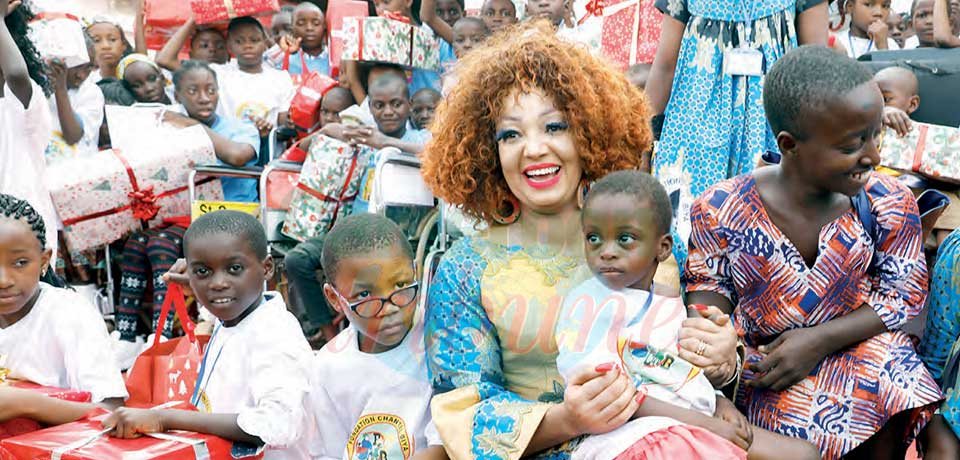
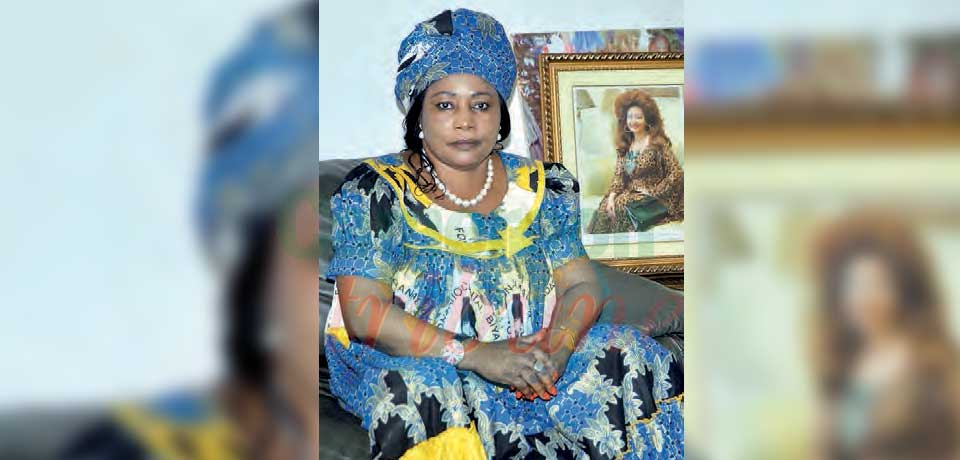
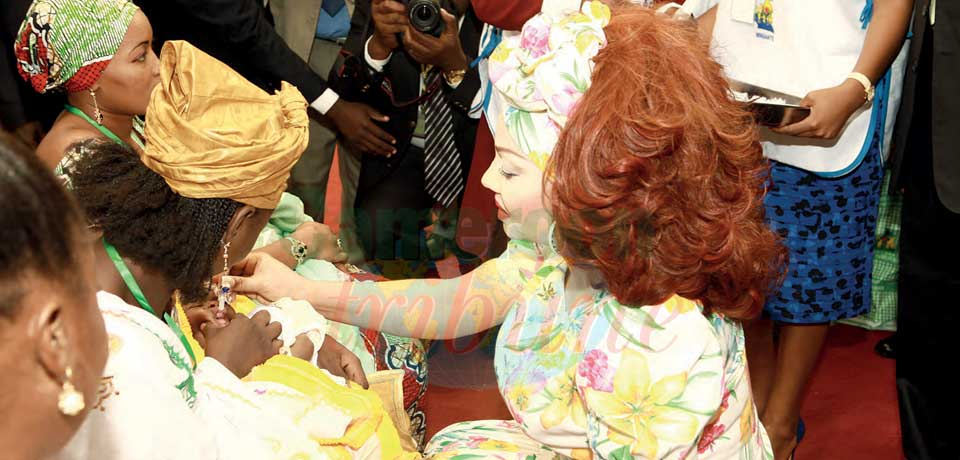
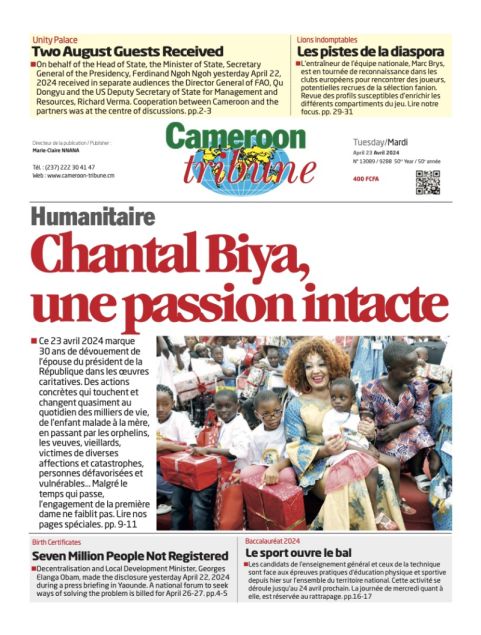




Commentaires